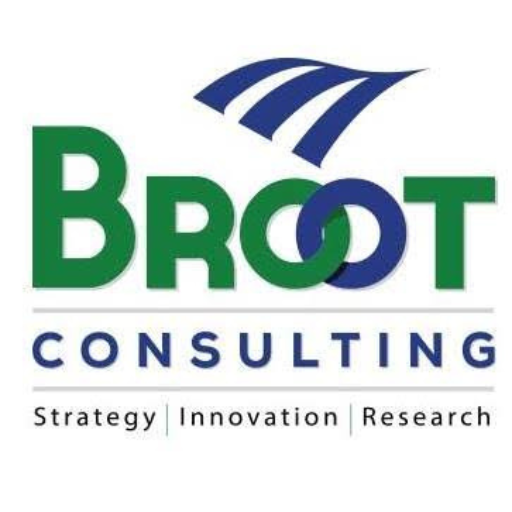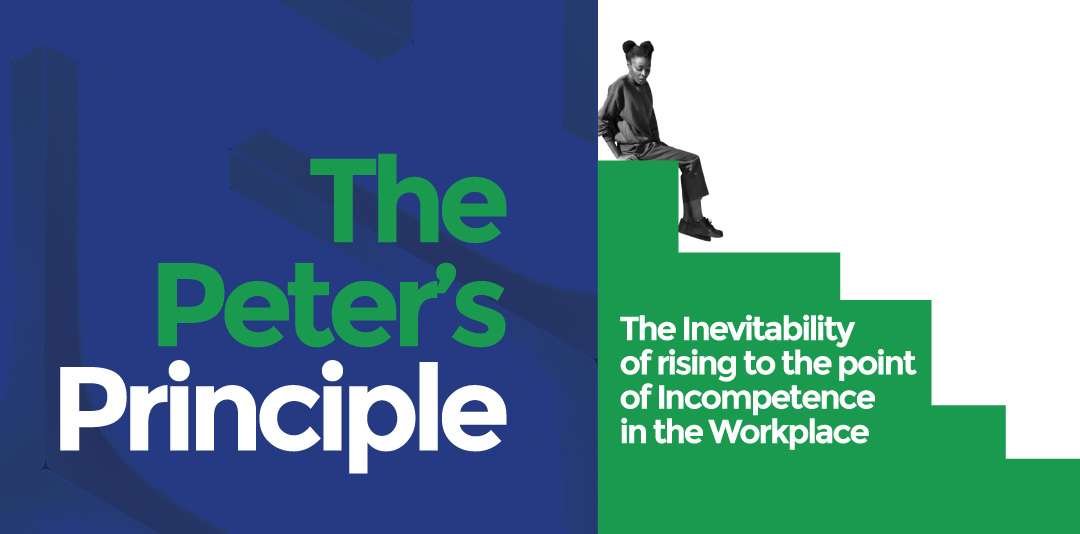THE PETER’S PRINCIPLE: THE INEVITABILITY OF RISING TO THE POINT OF INCOMPETENCE IN THE WORKPLACE
Every professional circle, regardless of its nature, has its share of bright stars: those individuals whose talent and dedication are so evident that they are frequently touted as the organization’s future. But too often, these rising stars reach a point where they seem to lose their sparkle. This isn’t a tale of lost potential but rather a symptom of an organizational phenomenon: Peter’s Principle.
An Encounter with Reality
I met a young man emblematic of this issue during a client visit. At 35, with the weight of a significant title – Head of Change Management – he was a classic case of rapid career trajectory based on merit. His transition from the Strategy and Transformation unit had been meteoric. Yet, his relationship with his mentor had soured due to perceived underperformance in his new role. Such situations beg the question: Can one’s past successes truly predict their future performance? Can a one-perceived star performer quickly become incompetent in a new role?
Decoding the Peter’s Principle
Dr. Laurence J. Peter, in 1969, identified a trend and came up with a novel theory that states that in climbing up the hierarchical ladder in an organization, people get promoted until they reach a point of incompetence. Despite their best intentions and previous records of star achievement, employees get promoted to the point of incompetence. In hierarchical organizations, the recognition and continued promotion based on current role performance can often overshadow the distinct skill sets required for higher roles. This means that what made an individual a star performer at level X might not necessarily translate to success at level Y.
John Sculley was a brilliant executive, lured from his position as President of PepsiCo by Steve Jobs to take the responsibility of the relatively unknown Apple Inc. as CEO in 1983. He recorded modest achievements as Apple CEO, and as a Marketing guru, he used the same marketing strategies that worked for PepsiCo at Apple. Sculley was later forced out of Apple because his managerial style that worked so well at PepsiCo was a disaster managing a Tech Company. His tenure was marred with infighting among top executives; he introduced expensive projects that flopped terribly in the market. The board had no choice but to kick him out when Apple was going on a downward spiral and slipping toward bankruptcy.
Was Sculley incompetent before being recruited to Apple? The answer is no; the high level of competence that seems to succeed in the same role in different industries and organisations proved disastrous in another industry and organisation. This isn’t to diminish the achievements of these individuals in their previous roles. Our young professional from the Strategy and Transformation unit was adept at his job. However, the skill set required for strategic planning and transformation may differ from the nuanced demands of managing organizational change. The disconnect arises when we assume that excellence in one automatically guarantees competence in the other.
Manifestations of the Peter’s Principle in Organizations:
- Decreased Performance: Just as in our example, an employee who was once a star performer in their former role may find themselves overwhelmed and underprepared for their new position. Their lack of expertise or skills necessary for the new function can significantly decline their performance.
- Low Morale: When someone is promoted beyond their competence, it can demoralize them. They might suffer from imposter syndrome, feeling they don’t belong in their new position. This can erode their confidence and hinder their ability to make effective decisions.
- Disruption in Team Dynamics: When an individual is not fit for their role, it can disrupt the team’s harmony. Other members may have to pick up the slack or manage the repercussions of poor decisions.
- Escalation in Decision-making: If decisions that should be made by an individual in their new role are frequently being escalated to higher-ups or deferred indefinitely, this can indicate a lack of confidence or clarity in their position.
- Decline in Innovative Ideas: A hallmark of Peter’s Principle is when a once innovative and proactive individual becomes more reactive in their approach, rarely proposing new ideas or solutions.
Proactive Measures Against the Peter’s Principle for an organisation
One of the greatest puzzles that confront organizational leadership is the case of highly competent employees suddenly becoming incompetent when given high responsibility. It is important that in measuring performance and assigning responsibilities, the Human Resource department pay attention to the following:
- ‘Test-Drive’ Promotions: This involve introducing an employee to a new role’s responsibilities during a transitional ‘probationary phase’, without an immediate title change. Termed as “responsibility elevation” or “role enhancement”, this approach provides employees the opportunity to understand and adapt to enhanced tasks before a formal promotion. By allowing employees to demonstrate their capabilities in managing added responsibilities, both the organization and the individual can evaluate the suitability and readiness for the role. This method ensures a seamless transition and confident promotions.
- Implement a Dynamic Competency Matrix: Develop an evolving framework that outlines the competencies required for each position. This matrix should be regularly updated to reflect the changing needs of the organization and the industry. By comparing potential promotion candidates against this matrix, companies can ensure individuals align with the demands of their prospective roles.
- Invest in Role-Specific Training: capacity development should be tailored to fit, not just broad-brushed. Ensure employees destined for promotion have access to support, resources and courses that hone the skills needed for their new roles.
- Cultivate a Culture of Feedback: Encourage an environment where employees at all levels feel comfortable sharing and receiving feedback. Develop 30:60:90 days performance expectations and goals. What is expected from the employees in the first 30 days on the job, the 60 days and then the next 90 days of the job? Establishing this should incorporate a two-way feedback mechanism and regular performance reviews to help identify early signs of Peter’s Principle taking effect.
- Establish Formal Mentorship Programs: Assign mentors to potential leaders. With their experience and wisdom, mentors can guide the transition into higher roles, bridging knowledge gaps and providing invaluable insights.
- Promote Regular Self-Reflection: Equip employees with tools, such as self-assessment surveys or workshops, to introspect their strengths and improvement areas. A self-aware individual is less likely to ascend to a position beyond their competence unknowingly.
- Encourage Open Dialogue: Maintain open communication channels where employees can express their feelings or concerns about their current or proposed roles without fear of reprisal.
Proactive Measures Against the Peter’s Principle Incompetence for Individuals
While organizations can put measures in place, individuals too can adopt strategies to ensure they don’t fall victim to this principle. Here’s how:
- Self-Assessment and Self-Awareness: Regular introspection about one’s strengths and weaknesses are essential. Understand the new skills and competencies each role demands and honestly evaluate your fitment for the same.
- Continuous Learning: Engage in consistent professional development. Attend workshops, seminars, or courses that can equip you with the skills needed for higher positions or different roles.
- Seek Feedback: Actively seek feedback from peers, subordinates, and superiors. Constructive feedback can provide insights into areas of improvement and prevent reaching a point of incompetence.
- Mentorship: Find mentors who can guide your professional journey. Their experiences and insights can be invaluable in understanding the demands of different roles and how to prepare for them.
- Open Communication: Communicate with your supervisors or HR about your career aspirations and concerns. This can lead to a better alignment of roles that fit your skills and competencies.
- Stay Updated: Keep yourself updated with industry trends, emerging technologies, and best practices. This will not only enhance your skills but also ensure that you remain relevant and competent.
The Way Forward
Ensuring that the right people are in the right roles is crucial in the intricate dance of organizational growth. This doesn’t mean limiting ambitious individuals from aiming higher but equipping them with the right tools, training, and support to ensure that they’re not left gasping for breath when they reach those dizzying heights.
In sum, while Peter’s Principle warns of a possible pitfall, it also illuminates the path for organizations and individuals to tread carefully, ensuring that every promotion recognizes past achievements and is a well-calibrated step towards future success.







This Post Has 6 Comments
Hello! I simply would like to give you a big thumbs up for your excellent information you’ve got right here on this post.
I am coming back to your site for more soon.
Thanks for ones marvelous posting! I really enjoyed reading it, you
may be a great author. I will make sure to bookmark your blog and will eventually come back later
in life. I want to encourage you to ultimately continue your great writing, have a nice morning!
My brother recommended I might like this blog. He was totally right.
This post truly made my day. You can not imagine just how much time I had spent for
this information! Thanks!
I’m impressed, I have to admit. Seldom do I encounter a blog that’s equally educative
and interesting, and let me tell you, you have hit the nail on the
head. The issue is something which too few men and women are speaking intelligently about.
Now i’m very happy I found this in my search for something concerning this.
The intensity of knowledge presented below is exceptional. I aspire to go through even more posts
from you.
my blog post; Cheap SR22 insurance
Generally I don’t read article on blogs, but I would like to say that
this write-up very forced me to take a look at and do it!
Your writing taste has been amazed me. Thanks, very nice post.